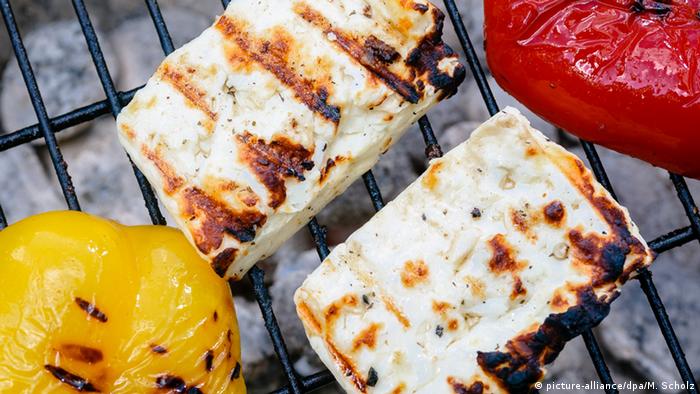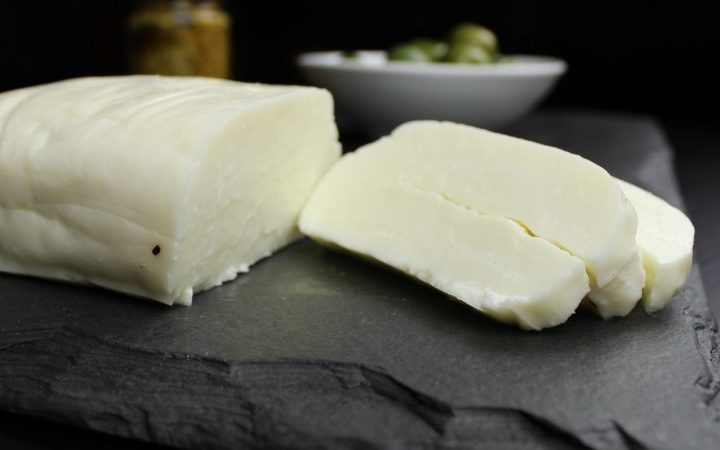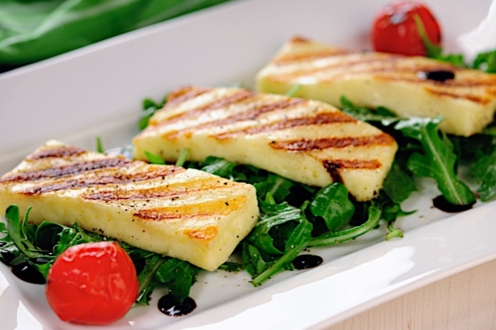The “what makes” Halloumi saga is far from over, as the government and stakeholders prepare for a legal standoff over how the island’s traditional white cheese should be produced.
Halloumi’s PDO (Product of Designated Origin) status, approved in April 2021 by the European Commission, means the rubbery cheese can only be produced in Cyprus, preventing imitators from claiming the crown.
However, local cheesemakers challenged its newly acquired PDO status in court, as they argued that tight criteria would unavoidably mean loss of exports and decreased production.
Responding to the challenges posed by dairy producers, the Agriculture Ministry tabled what was thought to be a ‘win-win’ formula for all sides.
Cyprus’ PDO file submitted in 2014 says goat’s milk should by 2024 exceed cow’s milk, reaching a minimum of 51%, made from specific Cypriot breeds of goats and sheep, which did not satisfy cheesemakers who fear the loss of Halloumi exports.
Based on new proposals tabled by Agriculture Minister Costas Kadis, the thorny issue of the milk ratio was reportedly addressed to everyone’s liking.
Amendments also relate to changes in the shape and weight, animal breeds, moisture content.
The sheep and goat milk ratio was to decrease from 50%+ to 20% while also including various halloumi by-products not included in the initial PDO file.
If the sheep and goat breeders accept the ‘deal’, they will see an increase in the milk price they deliver to dairies, subsidised by the government and dairy producers.
The increase for 2022-2023 is €0.18 per litre in sheep’s milk and €0.13 in goat’s milk.
Today the average price of sheep’s milk is €1.05 per litre and goat’s milk €0.70.
However, everything has ground to a halt after Kadis told parliament that the government would resort to legal action should the deal fall through.
He argued that none of the sides, including the dairy producers, cow breeders and the goat and sheep breeders, responded to his proposal.
Kadis told MPs, the Attorney General, to file a complaint to the competent authorities against all products labelled as halloumi sold in Cyprus, the European Union and third countries that do not comply with the PDO file.
It could mean that these products are removed from the market.
The ministry intends to employ the assistance of the international organisation Bureau Veritas tasked with verifying whether Halloumi products are PDO-compliant.
Cheesemakers stand firm
A source close from the dairy industry told the Financial Mirror that producers maintain the PDO file will have to be amended to back down from legal procedures already launched.
In October, the Cyprus Cheesemakers Association and 11 other applicants appealed to the EU’s General Court of the Court of Justice, arguing it should annul the Commission’s decision to enter Halloumi/Hellim into the register of protected designations of origin and protected geographical indications.
The appeal was based on technicalities, but the reason is that it will dent the €300 mln in exports of the famous cheese.
Cheesemakers said they were ‘forced’ to take action as adoption of the file will endanger Halloumi exports due to the ‘tight’ criteria.
According to the industry source, several appeals against Cyprus’ Halloumi PDO file are pending before local and EU Courts.
The same source also argued that no cheesemaker has been able to produce PDO Halloumi due to the strict definition.
Dairy producers maintain they received reassurances from the EU that the cheese’s European Union trademark would allow them to continue producing halloumi without complying with the ‘strict’ PDO file.
They argue that a shortage in goat and sheep milk makes it next to impossible to produce halloumi in the quantities they are accustomed to.
The PDO file also specifies that goat’s milk used in the mix should be from local goat tribes, fed with specific animal fodder.
It also foresees that halloumi should have a designated amount of mint and can only be sold in the shape of folded blocks.
In recent years, sales and exports of halloumi spiked with 2020, bringing in a whooping €266.5 mln.
Last year, the Agriculture Ministry valued the global halloumi cheese market at €420 mln, while studies show the market could generate over €625 mln in several years.
According to Dublin-based Researchandmarkets.com, the halloumi market is projected to nearly double in six years to reach $737.0 mln by 2027, registering a compound annual growth rate (CAGR) of 10% from 2021 to 2027.










